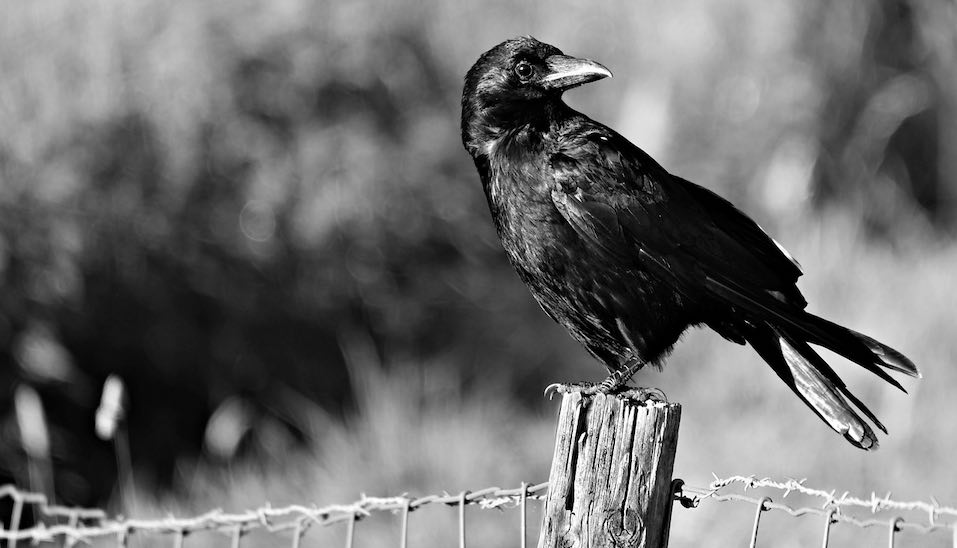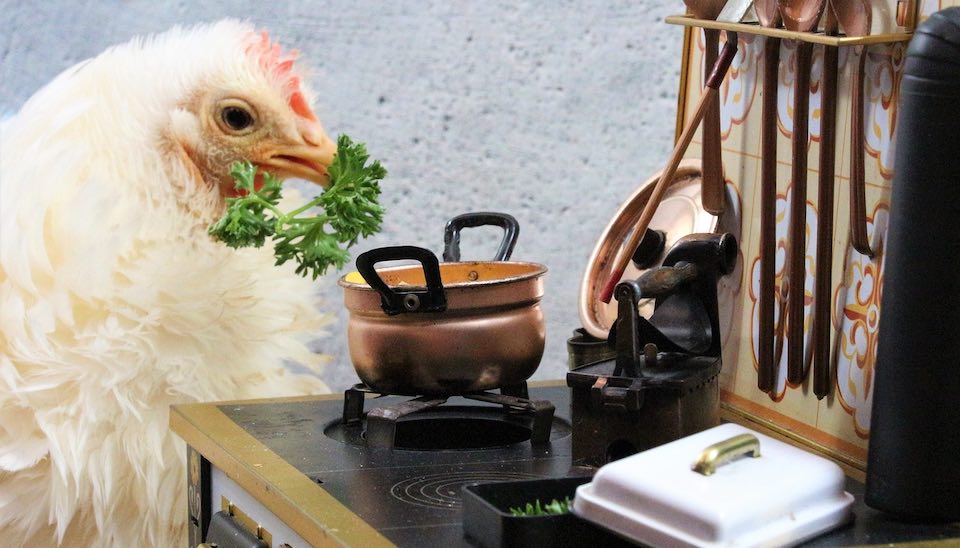Saving Money on Chicken Feed – 8 Myths Busted
8 Myths about Saving Money on Chicken Feed BUSTED
You’d be amazed how much a few chickens can eat! And with the current pinch caused by inflation and interest rate rises, Australians are looking to save money everywhere they can. And that includes saving money on chicken feed.
But if you Google ‘How to save money on chicken feed’, many of the answers are ill-informed.
Read on for 8 chicken feeding myths BUSTED. Or check out our blog for ways to reduce your chicken feed costs that actually work!
Feed costs and hidden savings
While it may feel like you are constantly shelling out for chicken feed, a chicken keeping budget is not straight forward.
People often forget to account for the economic benefits of chickens. Hidden savings on eggs, fertiliser, and even chicks and meat. Not to mention the benefits that don't have a dollar value!
So really, your feed costs should be calculated MINUS the savings made from eggs.
Chicken feed costs an average of 20 cents per day, and a free-range egg is usually worth 50 cents to a dollar. So a productive hen that lays an egg most days is easily covering her feed costs.
Need more help balancing the books? Read our article on the economics of chicken keeping for advice on making sure your flock pays for itself.
The problems with saving money on chicken feed
There are some easy and effective ways to save money on chicken feed, which you can read about here.
But there is also a lot of rubbish out there. Most lists of feed-saving ideas contain suggestions that are misinformed, if not downright dangerous.
Any suggestion that changes the nutritional balance of your chickens’ diet is likely affect health. Disease and deficiency, in turn, reduce egg production, meaning your chickens are no longer paying for their keep.
Here are 8 common suggestions for saving money on chicken feed that simply don’t work. Myth: BUSTED!
8 chicken feed saving myths BUSTED
1. Mix your own feed
Myth: Buying bulk grains and mixing your own feed is cheaper than buying a layer pellet
BUSTED: If you actually create a feed with equivalent nutrition to a complete layer pellet, it is unlikely to be cheaper. Especially when you account for key feed ingredients like protein meal, vitamins and minerals.
Plus, a complete feed is carefully balanced to ensure your chickens are getting everything they need to thrive. You need to achieve the same balance in your own feed mix, which isn’t easy to do. There is a reason why animal nutritionists have university degrees!
If your feed mix does not contain the correct nutritional balance, your chickens will suffer from deficiencies and disease. This reduces egg production (and savings!) and can even kill your flock!
You can learn more about creating a nutritionally balanced chicken feed here. Our advice? Trust the experts and don't blindly follow the recipes for chicken feed available online unless you are willing to risk the health of your flock.
2. Free-range your flock
Myth: Chickens that free-range eat less feed
BUSTED: Don’t get me wrong, free-ranging is great for chickens. All the greens and insects will lead to more nutritious eggs, and foraging flocks are happy flocks!
But will free-ranging actually save you money on chicken feed? Probably not - free-ranging birds eat around 10 % less per day, which saves 1-2 cents. But they also tend to need extra protein for optimum performance.
To really save money with free-ranging, your birds would need to have access to fresh range every day, in order to give insect and plant populations time to recover.
Myth: Chickens can survive on free-ranging and a little grain
BUSTED: Sure, chickens in the past survived on foraging and a little grain. But those farmyard fowl laid far fewer eggs and ended up in the stew pot far more often. This myth is not true of modern chickens.
Modern chicken breeds produce eggs far more intensively, and need balanced nutrition to do so.
So yes, you will save money if you let your chooks fend for themselves. But will they be healthy and productive? No. Decreased egg production will eat up any savings you make on feed costs.
3. Limit access to chicken feed
Myth: Limiting access to chicken feed reduces feed costs, i.e. Feeding chickens at certain times and/or in certain amounts
BUSTED: Evidence suggests that almost all chickens will eat only what they need when fed a nutritionally balanced pellet feed. Limiting access to chicken feed has hidden costs. Even if you do save money on feed, it is done at the expense of the health and productivity of your birds.
The most common impact of limiting feed access is that your chickens will binge eat when feed is available. This isn’t good for their digestive system and can cause crop damage over the long term.
The other problem with limited feed access is that it doesn’t affect all birds equally. Instead, the higher-ranking birds in your flock will monopolise the feeder and end up eating the same amount as they would otherwise. Lower-ranking birds will have less access, become less productive and suffer from more health issues than if they were able to access the feeder throughout the day when the dominant birds were elsewhere.
And limited feed doesn’t really make your birds forage more either.
4. Bulk out chicken feed with grains
Myth: Chicken feed will go further when bulked out with grains like oats or cracked corn
BUSTED: Most cheap grains aren’t healthy for chickens, and especially not as a significant component of their diet. Plus, if the grains are appealing, for example cracked corn or sunflower seeds, your chickens will eat more of them than they would the equivalent layer pellets!
Complete chicken feed is carefully balanced to ensure chickens get everything they need to thrive and lay eggs. Bulking out your feed dilutes the nutritional value, and especially the protein content.
Any savings you make on feed are eaten up by the hidden costs of decreased productivity and increased health issues.
5. Give your chickens scraps
Myth: If you give your chickens more scraps, they will eat less feed
BUSTED: In all fairness, this myth is true. Chickens will gorge on appealing scraps and neglect their feed. This is especially true of carb-heavy scraps like bread and pasta.
But does giving your chickens more scraps save you money? Not for egg layers.
Healthy scraps like fruit and vegetables are nutritious for chickens. But they don’t contain enough protein to serve as a replacement for feed.
Bread and pasta are unhealthy for chickens and the most common cause of chicken obesity. Because they have low protein, vitamins and minerals, feeding these scraps to chickens in place of feed causes deficiencies, decreasing egg production and impacting chicken health and longevity.
Unproductive, unhealthy chickens cost you money.
That said, if you are raising chickens for the table, you are not interested in longevity or egg production. In that case, replacing feed with scraps does save money. But if your chickens aren't eating a nutritious diet, their meat won't be as nutritious either.
6. Ferment the chicken feed
Myth: Fermenting feed makes it more nutritious, so chickens eat less
BUSTED: Some fermented foods have more bioavailable nutrients than non-fermented foods. They also have positive effects on gut health, which also aids digestion.
However, scientific evidence on the benefits of fermenting chicken feed is limited. It seems more likely to have health benefits than economic or nutritional ones. Any evidence that fermenting feed makes chickens eat less appears to be purely anecdotal.
Fermenting chicken feed also causes more waste, potentially increasing chicken feed costs. Unlike pellets, uneaten fermented feed must be discarded at the end of the day. Feed that is too "sour" is unpalatable to chickens, and on a hot day feed can become too sour in just a couple of hours! Plus, spillage is more likely with wet feeds because they are not suitable for most waste-reducing feeders.
7. Grow fodder for your chickens
Myth: Growing fodder for your chickens reduces feed consumption
BUSTED: If your chickens free-range, growing fodder is probably unnecessary work. Still green forage (or fodder) is a nutritious treat that chickens love!
But leafy green fodder is not the same thing as chicken feed. It lacks essential nutrients, in particular protein and carbohydrates. So in addition to being a lot of work, growing fodder for your chickens is unlikely to have an impact on feed consumption.
8. Feed your chickens weeds
Myth: Feeding your chickens weeds reduces feed consumption
BUSTED: Yes, weeds are a free, healthy treat for your chickens. Especially if they don’t get to free range. But like fodder crops, weeds tend to be low in protein and other essential nutrients. So while weeds are a free source of food for your chickens, they are not a replacement for chicken feed and are unlikely to reduce feed costs.
8 ways to save money on chicken feed that actually work
Fortunately, there are ways to reduce the cost of chicken feed that aren’t based in myth and old wives tales:
- Use a waste-reducing feeder
- Stop feeding rodents and birds
- Use a pellet feed
- Worm your chooks
- Shop around and compare protein content
- Think twice before buying bulk
- Store feed correctly
- Improve feed conversion
And remember, chickens provide so much more than just eggs. Don’t forget the benefits of chickens that you can’t put a dollar-value on like weed control, company and pest control!
Happy chicken keeping!
Rachael at Dine a Chook Australia







